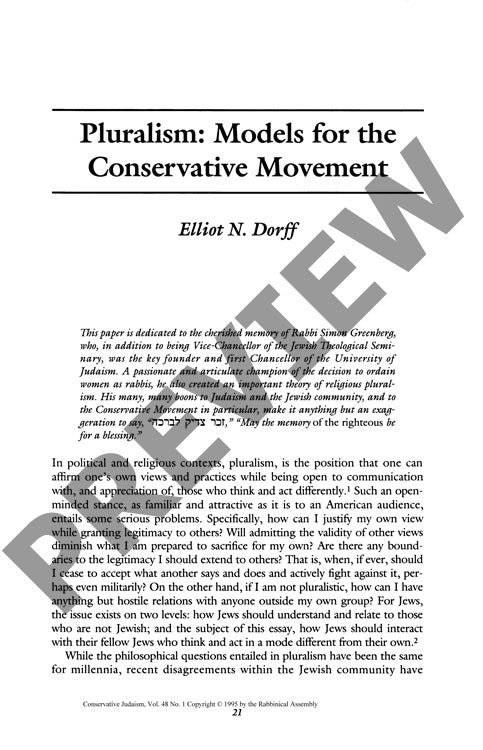Pluralism Models for the Conservative Mo
Couldn't load pickup availability
Religious pluralism within Judaism reveals a fundamental paradox: how can Jews maintain authentic religious commitments while genuinely respecting divergent practices? Through analysis of classical rabbinic texts, medieval commentaries, and contemporary theological writings, a complex pattern emerges of balancing communal unity with legitimate disagreement - exemplified historically in the disputes between the schools of Hillel and Shammai. While classical sources tolerated diverse opinions within shared fundamental beliefs, today's unprecedented spectrum of Jewish observance demands new frameworks for mutual recognition. Modern approaches range from Orthodox rejectionist positions to Soloveitchik's dual covenant model distinguishing between fate and destiny, to liberal perspectives celebrating diversity as divinely intended. Close examination of these sources reveals that effective pluralism stems not from relativism but from humble monotheism - an acknowledgment that God intentionally created intellectual diversity to demonstrate divine grandeur and human epistemological limitations. This research demonstrates that sustainable religious pluralism requires balancing epistemological humility about human understanding of divine truth while maintaining authentic commitment to one's own religious positions.

More Information
-
Physical Description
-
Publication Information
Published 1995
ISBN
-
Publication Credits
Elliot Dorff

